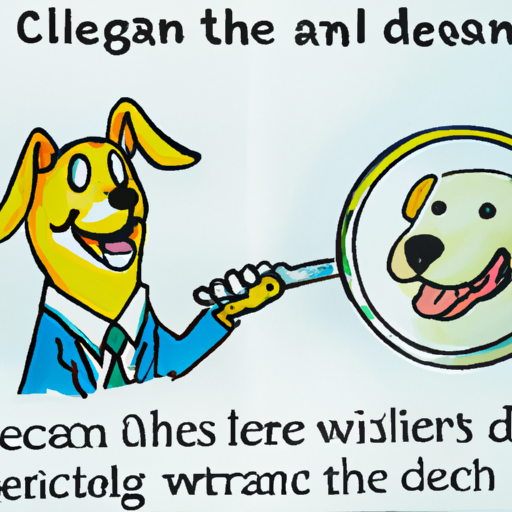Often, you have probably heard the adage that a dog’s mouth is cleaner than a human’s. This claim has been around for a long time, leading to a common belief that somehow, dogs have some magical power to keep their mouths free from bacteria. However, is there any truth to this? Surprisingly, yes—but not necessarily in the way you might think.
Table of Contents
- Understanding the Canine Oral Microbiome
- Key Differences Between Human and Canine Oral Health
- Are Dogs’ Mouths Really Cleaner?
- The Role of Diet in Oral Health
- Introducing Dental Care for Dogs
- Frequently Asked Questions
Key Takeaways
- Dogs’ mouths are not necessarily cleaner than humans’ in terms of bacteria count, but the bacteria present are often less harmful to them.
- Dogs’ oral health is influenced by their diet, which is typically less sugary than humans’.
- Regular dental care is essential for dogs, just like it is for humans.
Understanding the Canine Oral Microbiome
The oral microbiome refers to the community of bacteria living in the mouth. Just like humans, dogs also have an oral microbiome. However, the types of bacteria present in a dog’s mouth are different from those in a human’s mouth. Dogs have around 600 different types of bacteria in their mouths, while humans have around 615.
This difference in microbiota is due to the different diets and lifestyles of dogs and humans. For instance, dogs have a tendency to lick and chew on various objects, exposing them to different bacteria that humans don’t usually come into contact with.
As per a study by PLOS ONE, the oral microbiome of dogs and humans has only an 16.4% similarity. This simply means that most bacteria found in a dog’s mouth would not be harmful to the dog, but might be to a human, and vice versa.
Key Differences Between Human and Canine Oral Health
Human mouths are warm, moist environments that can easily support the growth of bacteria, especially after eating sugary or acidic foods. However, dogs’ mouths are designed differently. Their saliva has a different pH level, which can affect the types of bacteria that thrive there. Moreover, dogs’ teeth are sharper and less likely to trap food particles, reducing the likelihood of plaque buildup.
In addition, dogs’ oral health is heavily influenced by their diet. Unlike humans, dogs do not typically consume processed sugar, which is a significant contributor to tooth decay in people. Their diet consists mostly of proteins and fats, which are less likely to promote the growth of harmful bacteria.
Are Dogs’ Mouths Really Cleaner?
When it comes to bacterial count, dogs’ mouths are not necessarily cleaner than humans’. However, the bacteria present are often less harmful to dogs due to their unique oral environment and immune system.
For humans, the bacteria in a dog’s mouth can lead to infections if transmitted. Therefore, while a dog’s mouth might be ‘cleaner’ in terms of the bacteria being less harmful to them, it’s not necessarily the case for humans.
The Role of Diet in Oral Health
As mentioned earlier, diet plays a significant role in oral health. Dogs typically consume less sugar and more proteins and fats than humans do. This article from One Top Dog provides an in-depth look into how a dog’s diet can influence their oral health.
Introducing Dental Care for Dogs
Just as humans need to maintain oral hygiene, dogs also need regular dental care. Brushing your dog’s teeth should be a part of their regular grooming routine. Additionally, providing them with dental chew toys can help in reducing plaque and tartar buildup.
Your dog’s dental health should not be overlooked. Dogs can also suffer from gum disease, tooth decay, and other oral health issues, just like humans. Regular check-ups with a vet are also essential. If you’re looking for more tips on taking care of your dog’s teeth, this article might help.
Frequently Asked Questions
1. Does this mean it’s safe to let my dog lick me?
While the bacteria in a dog’s mouth are typically not harmful to them, they can be to humans. Therefore, it’s better to avoid this.
2. How often should I brush my dog’s teeth?
Ideally, you should brush your dog’s teeth daily. However, if that’s not feasible, aim for at least three times a week.
3. What should I do if my dog has bad breath?
Bad breath in dogs could be a sign of oral health issues. It’s best to consult a vet in this case.
In conclusion, while dogs’ mouths might not be ‘cleaner’ than humans’ in the conventional sense, they are often less harmful to the dog’s own health. This is due to differences in the oral environment and microbiome. However, just like humans, dogs also need regular dental care to maintain their oral health.



